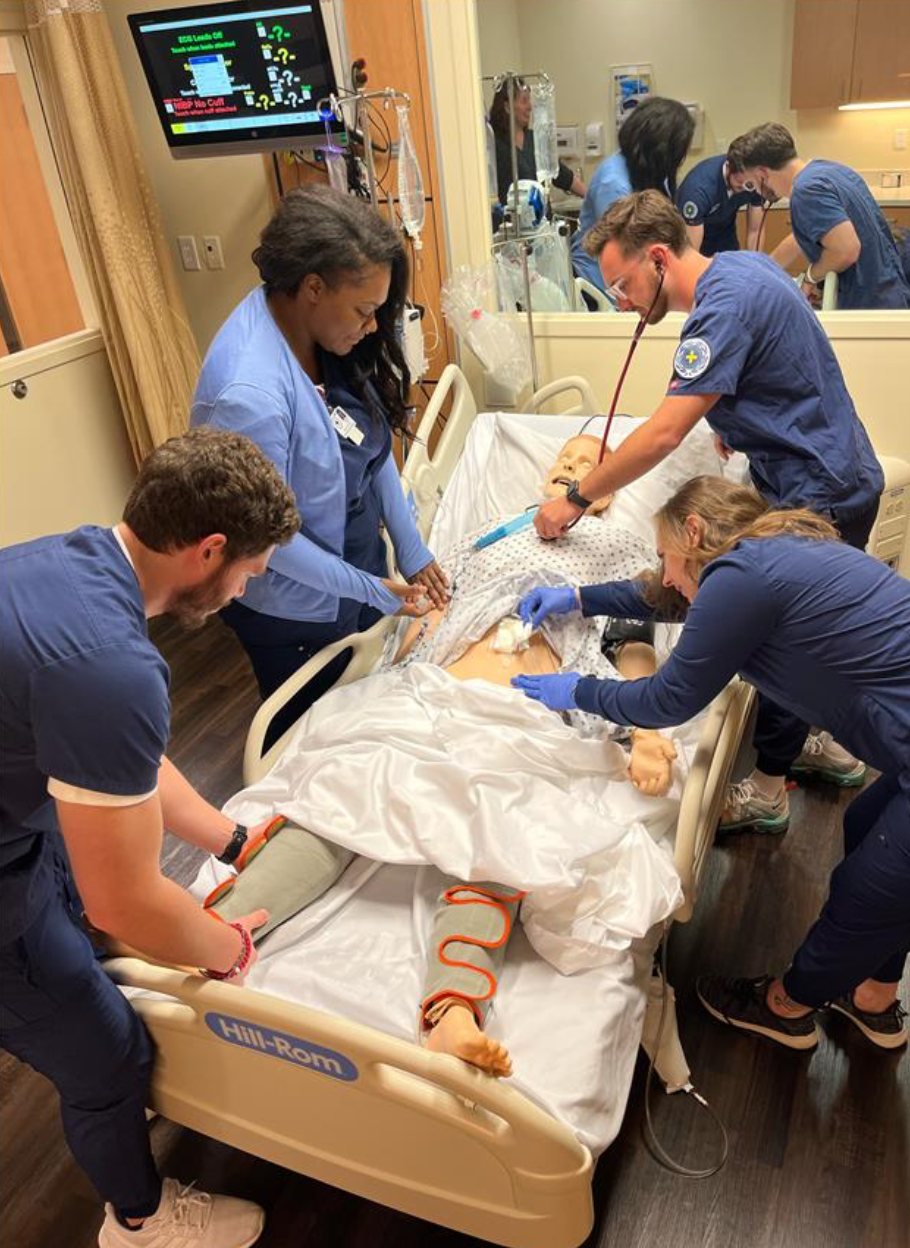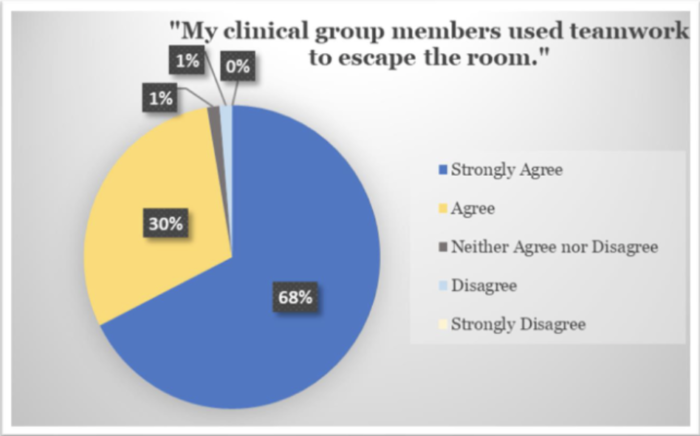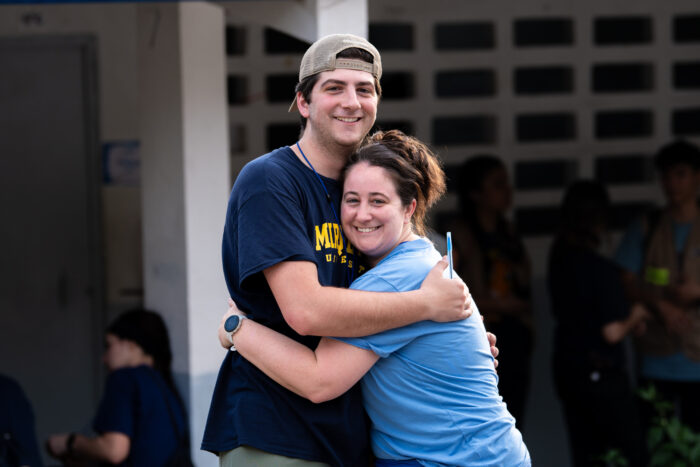
Seeking to prepare nursing students for patient care simulations in a different way, Marquette’s Wheaton Franciscan Healthcare Center for Clinical Simulation provides a realistic health care environment in the form of an escape room, inspired by the popular family-friendly entertainment venues. In this scenario, students strengthen essential clinical competencies, develop sound clinical reasoning and prepare for high-risk situations.
“It’s a fun and engaging activity for students to become oriented to the clinical simulation environment,” says Anne Costello, director of the Wheaton Franciscan Healthcare Center for Clinical Simulation. “It also allows them to work together to become familiar with the room and its equipment and technology.”
In the escape room, junior nursing students encounter a sequence of clues that guide them through a progressive series of assessments and interventions. After each successful step, the students receive a puzzle piece — a completed puzzle is their ticket out.
The overall goal is to increase students’ confidence and lower their anxiety in future simulations — and eventually their careers.
Game time
According to Paige Tulo, a junior nursing student who participated in the escape room this fall, the lab was a safe place to make mistakes and learn.
“During our first clinical simulation, it was really nice to have a fun activity on the first day, while getting used to all the equipment and where everything is placed,” she says.
Junior Cece Oettinger agrees and describes the lab as an out-of-the-box approach to becoming acquainted with the clinical environment.
“This lab is a great way to grow in relationships with other students and to learn without just reading or listening to explanations from a professor,” Oettinger says. “Working on your feet and actually learning hands-on material allows for us, as nursing students, to learn about ourselves and those patients we will care for during our careers.”
Teamwork

The activity is fun, but it also offers students a place to practice working in teams, something that Oettinger explains is essential for a professional career in nursing.
“Teamwork is a huge part of nursing, as nurses are constantly working with other care team members and their patients. Working in teams in the sim lab prepares us for working in teams in the care setting outside of school,” she says. “In this particular safety lab, it is beneficial to work in teams because each person has a different insight and can notice new and different safety measures. Working in teams ensures that more safety measures are noticed and cared for.”
Preparing for the future
Tulo shares how the escape room lab helped increase her confidence and prepare her for her professional future.
“This lab prepares us for professional practice because once we have our license and are practicing, it is essential that we get used to patient rooms so that we know where everything is, especially in times of an emergency,” she says.
“In the nursing field, we are constantly looking for ways to enhance patient safety and care. This lab is unique in preparing us for our professional career because it addresses all aspects of nursing care rather than just physical patient care,” Ottinger adds. “While providing medications, monitoring vital signs and performing assessments are all huge parts of nursing, assessing a patient’s safety is one of the most important aspects of care as it can prevent mishaps and injuries from occurring.”
At the end of the day, what do the students like best about the escape room?
“This lab is so fun!” Oettinger says.
The gamification has made students feel more comfortable in clinicals, has prepared them to work together in teams and has energized them to prepare for their futures.
Tulo says, “I always have a good time down in the sim lab. This is a great low stakes way to improve my skills and make mistakes without risking the patient!”


